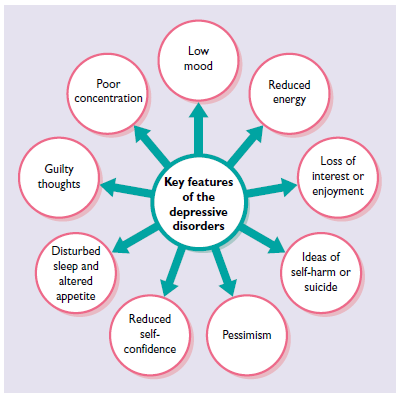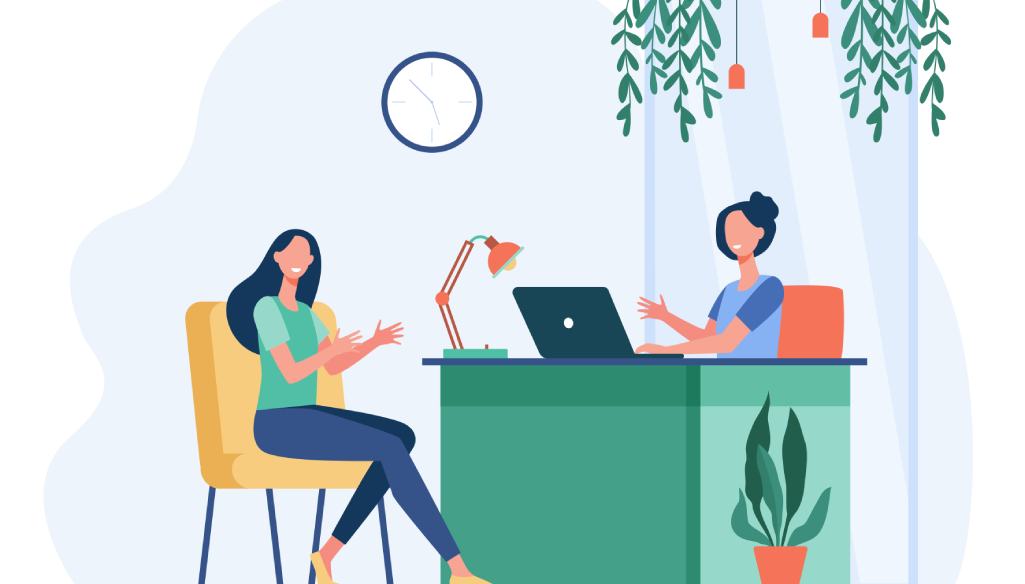Depression is a common mental health disorder that affects our personal, interpersonal and societal functioning.
What is depression?
Although the way people experience depression varies, there are a few key features
- Low mood
- Reduced energy, and
- Loss of interest or enjoyment.
Along with these, we can also find difficulties in concentration, reduced self-confidence, increased thoughts of guilt, pessimism, ideas of self-harm or suicide, disturbed sleep and altered appetite.

Psychotherapeutic treatment approaches for depression
The clinical psychologists in Pune at Center for Mental Health, can help us by using a combination of therapeutic approaches. These are some of the approaches which could be used according to our difficulties and needs.
Cognitive behavioural therapy (CBT)
In depression, we have recurrent negative views that directly affects how we
- see ourselves (we might feel worthless, helpless);
- see our world (we might see life as being meaningless); and
- see our future (we might feel as if there is no hope in life).
Clinical psychologists at Center for Mental Health, Pune can help us identify the way we see ourselves, our environment and our future.
Along with this, psychologists also help us understand the way we think and how we can challenge our negative thinking as well as work on our emotional experiences.
Psychologists at Center for Mental Health, Pune will also use certain behavioural techniques like asking us to give time for the things that we like to do, divide bigger tasks into smaller parts and then work on them or reward ourselves after completing a task, etc.
Problem-solving skills building
It is a brief and practical psychological intervention that has been found to be effective in the treatment of depressive disorders in primary care (Mynors-Wallis et al., 1995) (Mynors-Wallis, 2000).
Everyone has problems and these problems can be resolved by using techniques of problem-solving. Once the problems are resolved we experience a reduction in depressive symptoms.
Psychologists at Center for Mental Health, Pune, can help us learn techniques which will resolve our problems in a structured and logical way. These techniques will always prove to be a resource and we can use them for solving any kind of difficulties we face in life.
Person-centered therapy
Person-centered therapy follows a non-directive approach in therapy in which the we can take lead in the sessions such that we can find our own solutions to our problems.
The therapist is accepting and provides an unconditional positive stance to us, our feelings and our experiences.
The therapist tries to completely understand and accept our thoughts and feelings, in a way that can help us reshape our experiences.
The therapist maintains open and honest communication which encourages us to share our feelings and engage in honest conversations.
This approach invites us to explore and express our experiences and emotions. (Cuijpers et al., 2012).
Clinical psychologists at Center for Mental Health, Pune, aim to provide an atmosphere that can prove to be conductive for our growth and ‘self-actualization’.
Interpersonal therapy (IPT)
Humans develop strong bonds in their childhood with their parents and siblings and significant others. At times, these childhood bonds and childhood experiences can become problematic and can lead to emotional problems.
These problematic interpersonal relationships lead us to develop maladaptive ways of dealing with life.
Psychologists at Center for Mental Health, Pune, can help you deal with the four major areas using IPT
- abnormal grief reaction (e.g. excessive guilt, anger, helplessness etc. for a prolonged period of time after loss of a family member or close friend),
- interpersonal role disputes (e.g. finding it difficult to deal with relationship conflicts)
- difficult role transitions (e.g. developmental landmarks, career changes)
- interpersonal deficits (e.g. inadequate social skills)
10 little things that can help you!
Seek therapy
If you think you can identify with any of the above given features of depression, and these features are affecting your personal, professional and social life, you can seek therapy.
Try to build your social network
Keep in touch with those whom you can count on, like your friends and family. This social support goes a long way when you are feeling low.
Journal
Journaling or writing down your thoughts can help you by releasing some of your inner thoughts, feelings and concerns. When you write down, you can also see your own thoughts and emotions objectively.
Improve sleep hygiene
Sleep and mood are intimately related. At times you feel as if you just can’t fall asleep, or at times you might struggle to get out of bed because you are too tired. Good sleep hygiene could be key to improving the quality and quantity of your sleep. A psychologist can help you understand your sleep patterns and develop a sleep routine for you.
Improve your eating habits
Just like sleep, diet is also intimately related to mental health. Studies have shown improving nutrition can prevent and treat mental illness (Sarris et al., 2015). Improving your diet could help you reduce your symptoms. But before making any changes in your diet, talk to a dietician or a physician.
Avoid procrastination
Symptoms of depression, like fatigue and difficulty concentrating, can make you procrastinate. Putting off things can lead to increased feelings of guilt, worry, and stress.
To beat procrastination, set deadlines, and manage your time well. Establish short-term goals and work hard to get the most important things done first.
Exercise
Exercise may seem like the last thing you’d want to do when you don’t feel like getting out of bed. However, exercise and physical activity can help to lower symptoms of depression and boost energy levels. Just a 30-minute walk can alter your mood.
Reward your efforts
All goals are worthy of recognition, and all successes are worthy of celebration. When you achieve a small goal, recognize it and treat yourself for it. Remember your celebratory tasks the next time your voice says “you can’t do it”.
Do something you enjoy
Try to do something you like and find pleasure in – play an instrument, paint, go hiking or biking; do gardening, anything you like. Engaging in things you like boosts your mood and energy and motivates you to continue to engage in more such activities.
Practice gratitude
Try to include brief activities designed to cultivate a sense of gratefulness regularly. For eg. Make a gratitude list by writing down things you are grateful for or express your grateful feelings to others.
Positive emotions, like gratitude, have a protective effect, leading to improved well‐being (Komase et al., 2021).

